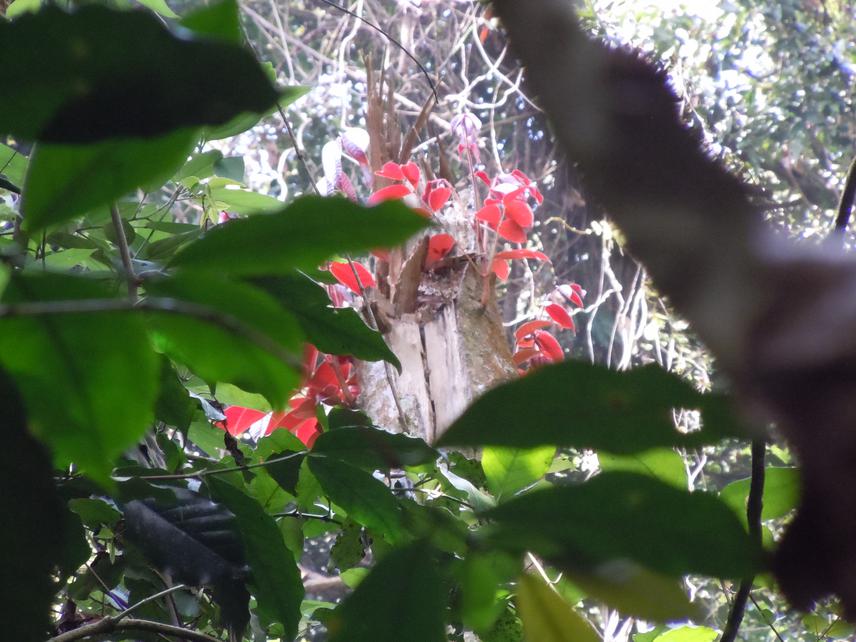Anita Varghese
The projects aims to develop an ecological monitoring plan in partnership with communities and a grassroots NGO, to better conserve ecologically and culturally important habitats.

Tree number S14 showing signs of life.
The proposed project, which will be part of my PhD, seeks to establish linkages between gatherers of wild plants, their knowledge, and the ecology of the plants; and to establish a long term ecological monitoring for the conservation of harvested species and their habitats. The study will be conducted in the Nilgiri Biosphere Reserve area of the Western Ghats, India. Canarium strictum is an an important resin-producing medicinal species in the Western Ghats in India. An earlier study identified three distinct methods of resin harvest and illustrated their impacts on population structure. The harvest of plant resin for use in medicine and fragrance is widespread and ancient, yet we have little information on the ecological impacts of resin tapping of wild trees.
The objectives of the project are:
1) Record the knowledge of harvesters about the ecology of harvested species and their habitats;
2) Assess impacts of different harvest methods on the ecology of harvested species using the example of resin harvest from black dammar (Canarium strictum).
The study will use participatory and interview based methods to assess the perspectives of the harvesters and to design community-based monitoring protocols. The conservation status of the study species will be assessed using demographic field methods and germination trials in situ and ex-situ.
The results of the study will be important in identifying the effects of climate change, changing management and other factors on biologically and culturally important resources, and will provide direct insight for better conserving ecologically and culturally important medicinal plants and their habitats. Understanding and recording the community’s perspectives on the changes that are happening to the ecosystem around them, will aid in knowledge exchanges between forest user groups nationally and globally. Besides the learning through such exchanges this knowledge will be brought to the notice of the scientific community. By combining harvesters’ motivations and interests, traditional ecological knowledge, and ecological assessments we can better conserve ecologically and culturally important wild plants and their habitats. The long term impacts of this project lie in the sustainable implementation of the ecological monitoring protocol.